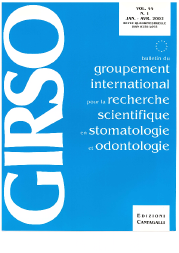The "impact factor" in the evaluation of research
Abstract
The "impact factor of journals", in brief IF, has become an important tool for the evaluation of research activities in certain disciplines, while it is gaining additional influence in others. Its widespread use is increasingly determining the fate of individuals, and academic departments. It is also contributing to restructuring of academic libraries and to reshaping the map of academic periodicals. There is no doubt that this index appears useful, and in many respects, attractive. It relieves faculty and administrators of the burden of reading and comparing papers and it seems to provide an ";objective"; criterion for judging scientific research. In this paper we present a different view and we argue that costs, in terms of potential damage to the scientific system, which are caused by an uncritical application of the IF, exceed by far its supposed merits. One purpose of this paper is to encourage scientists working in disciplines that have not yet been invaded by IF, (such as historians, jurists, social scientists and students of the humanities) not to be intimidated by the fact that other sciences are using IF to as a measure of research quality, and to carefully consider the implications of adopting such an index. This is not a study based on sophisticated statistical analysis. For such analysis we refer to the paper by Per O Seglen (a). Our criticism is based on ";political"; considerations, for which we deem observing reality with the naked eye to be sufficient.
Downloads
Published
Issue
Section
License
I hereby certify that the authors of the above manuscript have all:
1. Conceived, planned, and performed the work leading to the report, or interpreted the evidence presented, or both;
2. Written the report or reviewed successive versions and shared in their revisions; and
3. Approved the final version.
Further, I certify that:
1. This work has not been published elsewhere and is not under revision in another journal;
2. Humane procedures have been followed in the treatment of experimental animals (if applicable);
3. Investigations in humans was done in accordance with the ethical standards of the responsible committee on human experimentation or with the Helsinki Declaration (if applicable).
4. This paper has been carefully read by a native English speaker who is familiar with the field of work (this applies to authors who are not fluent in English); and
5. The copyright of the article is transferred from the authors to the Bulletin du Groupement International pour la Recherche Scientifique en Stomatologie et Odontologie upon acceptance of the manuscript.



